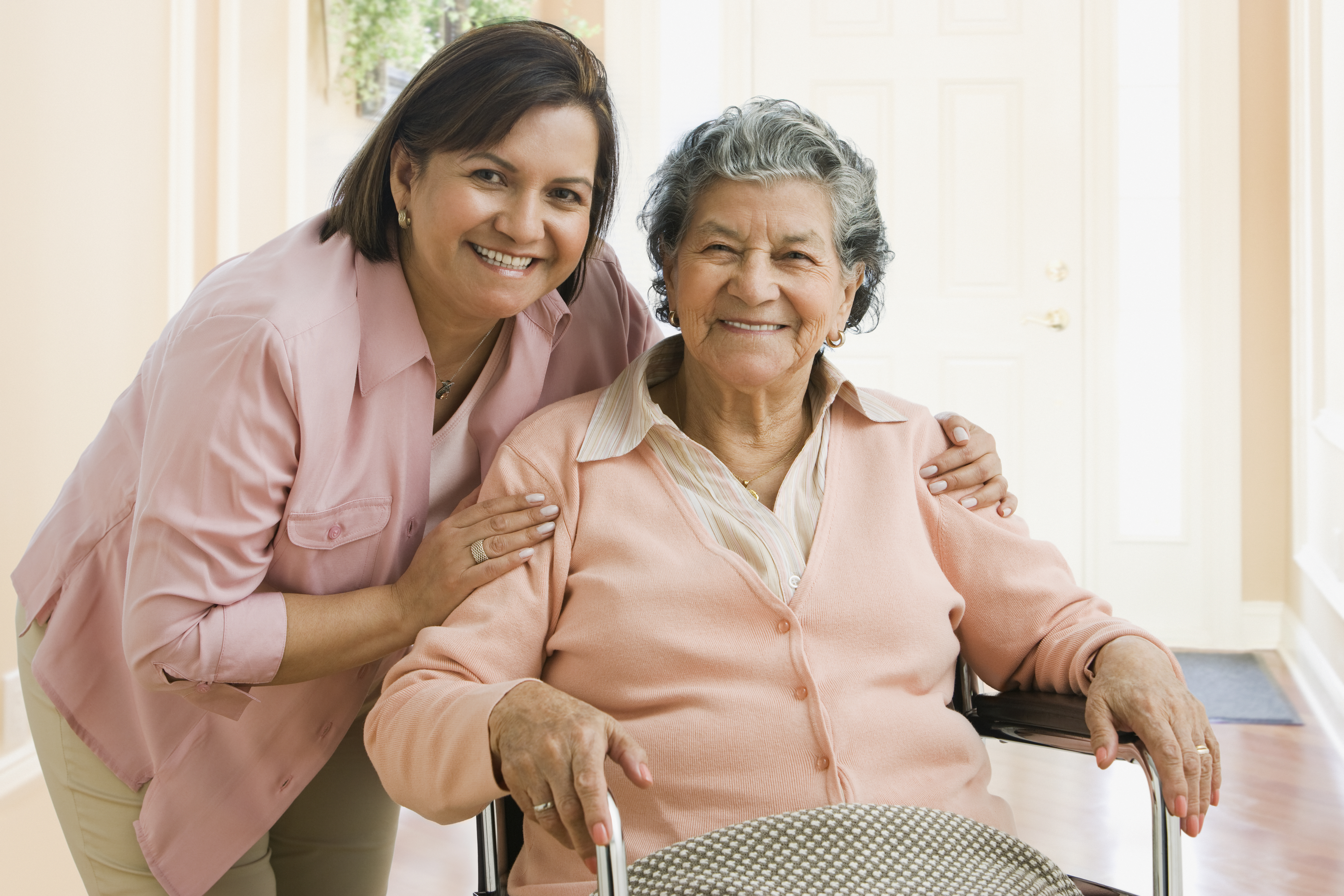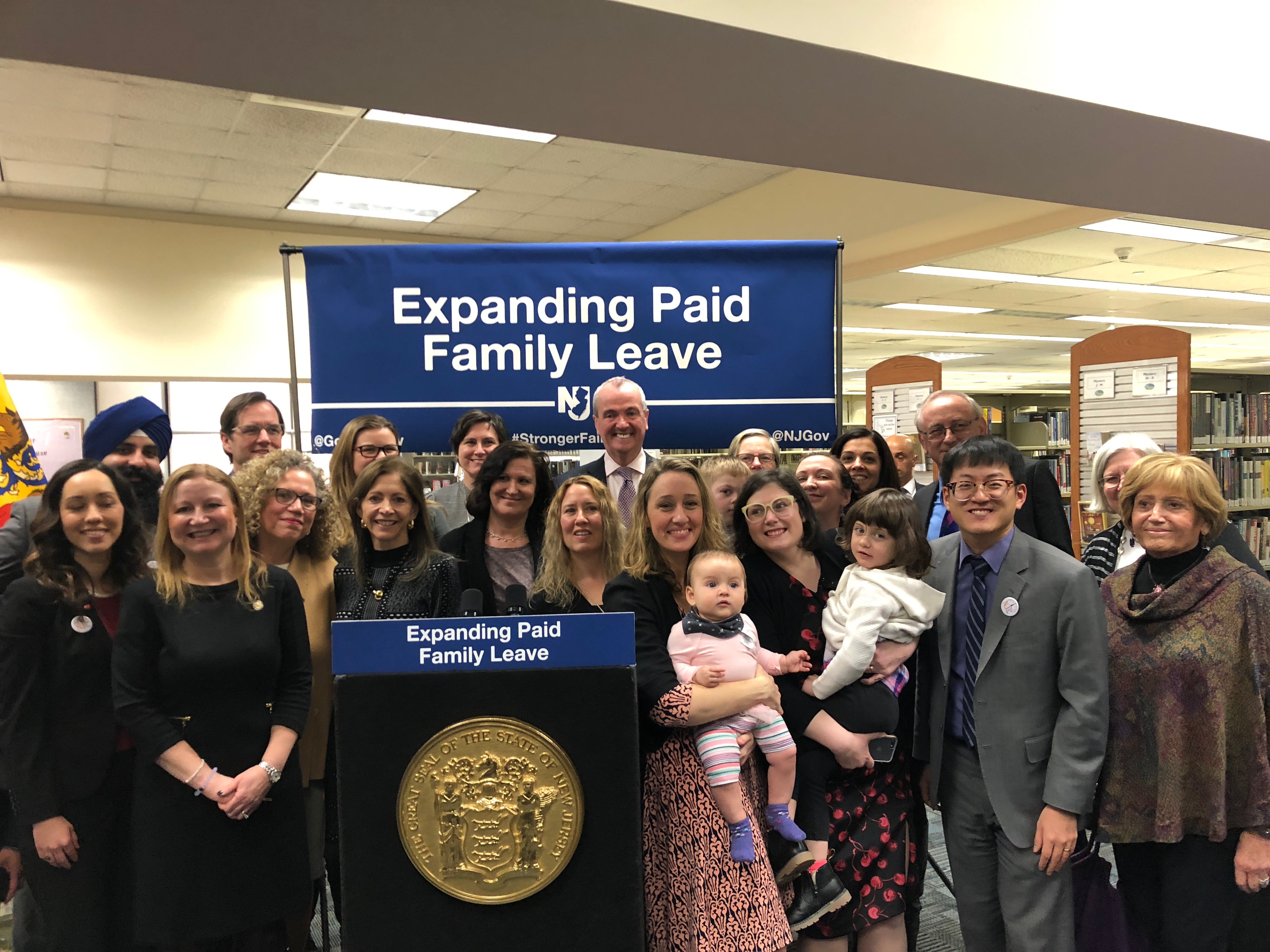cover photo alt option 2.JPG" width="803" height="429" />
Tell Your Lawmakers: Family Caregivers Need Financial Relief Now!
Family caregivers are the first line of defense against older residents being forced from their homes and into subpar nursing homes - and it's not easy.
On average, family caregivers spend 26% of their income on caregiving activities, and more than $7,200 annually on out-of-pocket expenses related to caring for their loved ones. This expensive care helps older loved ones remain safely at home. And now, the pandemic and rising costs due to inflation have only made things more difficult.
AARP is fighting to bring some financial relief to family caregivers, who need and deserve support.
There is bipartisan legislation, the Caregiver’s Assistance Act (A1802/S2021), that would provide eligible NJ family caregivers with a modest refundable income tax credit of up to $675.
Family Caregiver Resources for New Jersey
Caregiving may be one of the most important, and challenging, roles you’ll ever take on. No matter where you are in your caregiving journey — starting to plan; taking care of a family member in your home, in a facility, or from a distance; or managing end-of-life caregiving responsibilities — having resources at your fingertips will make the process easier.
AARP developed this New Jersey family caregiver guide with you, the caregiver, in mind and as a starting point to help you find the services and support you might need throughout your journey. Find resources here and additional information on caregiving here .
AARP Poll Reveals Strong Support for Family Caregiver Tax Credit
Among New Jersey voters 50 and older, there is overwhelming support (84%) for the state to expand the tax credit for Wounded Warrior caregivers to all family caregivers who provide care for older loved ones, according to a new poll from AARP.
Family caregivers often face challenges that put their own financial and emotional well-being at risk. Survey findings about unpaid family caregivers in New Jersey, include:
Read AARP New Jersey's full media statement here .
10 Questions to Ask if a Loved One is in a Nursing Home
Americans living and working in nursing homes and other long-term care facilities have been disproportionately affected by the coronavirus pandemic, accounting for roughly a quarter of all U.S. COVID-19 deaths. Here are 10 questions to ask if your loved one is in a nursing home or long-term care facility:
Learn more about the 10 questions here .
AARP New Jersey is Fighting to Protect Your Loved Ones in Nursing Homes
AARP New Jersey is fighting to protect your loved ones in long-term care facilities. Our work has led to the recent enactment of laws that make bold and significant changes designed to improve the quality of care and protect the dignity of residents and staff.
The new laws include: prioritizing testing and personal protective equipment for long-term care facilities, virtual visitation for residents and their families when in-person visitation is not possible, adequate staffing and improved wages to enhance and stabilize the workforce, more oversight and funding for resident care. Learn more .
We also urged the state to require vaccinations for all long-term care staff, residents, visitors and volunteers. Read more .
Family Leave Insurance Program has Expanded as of July 1, 2020
Do you need to take time off from work to care for a loved one? AARP New Jersey has been fighting on behalf of the state's more than 1 million caregivers to expand the New Jersey Family Leave Insurance Program.
You may be eligible to receive Family Leave Insurance benefits to care for a child, spouse, parent or domestic partner, as well as parents-in-law, siblings, grandparents, grandchildren, any blood relative, or anyone with whom you have a close, family-like relationship.
As of July 1, 2020, expanded benefits to the New Jersey Family Leave Insurance Program include:
Visit the New Jersey Department of Labor here to learn more about the benefits, and you can find answers to the most frequently asked questions here .
To apply for Family Leave Insurance benefits, visit here .
5 Questions to Ask About Visiting Nursing Homes
Nursing homes are starting to resume in-person visits for families in many states as COVID-19 restrictions ease. These visits will be different than before the pandemic, at least for some time. There may be limits on when, where and for how long you can see loved ones, and distancing rules will likely be in place.
AARP has developed some key questions to ask nursing homes, assisted living, and other long-term care facilities — and yourself — about when and how visitation might resume. View our list of questions here .
Caregiving During COVID-19: Information and Resources
(June 9, 2020) - Across New Jersey more than 1 million family caregivers help their parents, spouses and other loved ones - and we can expect COVID-19 to increase the number of individuals who are providing short-term or long-term care to an older loved one.
AARP New Jersey joined Social Community Activities Network 's show, " Caregivers First ," to discuss legislation that impacts caregivers, and how caregivers can navigate taking care of a loved one during the pandemic.
On this episode , you'll learn about:
✅ Resources and support for caregivers
✅ What caregivers need to know if they have a loved one in a nursing home
✅ Improved access to telehealth
Watch the full interview here .
Is Your Loved One in a Nursing Home? 6 Questions You Need to Ask
If you have a spouse, sibling, parent, or other loved one in a nursing home, you may be worried about their safety and well-being because of the coronavirus pandemic. Here are some key questions to ask the nursing home.
Caregivers: 5 Step Checklist for COVID-19
According to the Centers for Disease Control (CDC) and Prevention, older adults and individuals with chronic health conditions are at higher risk for serious illness from the coronavirus (COVID-19).
With already more than 40 million family caregivers helping loved ones with care in the U.S., we expect the virus to increase the number of family caregivers who are providing short-term or long-term care to an older loved one.
AARP wants to offer some guidance to family caregivers, specifically to help them tackle how to create a plan for those they are caring for, and supporting those new to caring for someone due to the virus impacting more of the older population.
New Law in New Jersey: Paid Sick Leave

Across New Jersey more than 1 million family caregivers help their parents, spouses and other loved ones so they can remain at home – where they want to be. The majority of family caregivers also juggle full or part-time jobs while caregiving.
AARP advocated for passage of the New Jersey Paid Sick Leave Act and, on October 29, 2018, New Jersey became the 10 th state in the nation to require employers to provide paid sick leave - a lifesaver for working caregivers in our state.
Here's what you need to know:
For more information about the law and your rights as a New Jersey worker, visit the New Jersey Department of Labor website .
3 Things You Need to Know - a printable reference card for New Jersey's Earned Sick Leave Law.
New Jersey Enacts Caregiver Task Force Bill

On December 17, 2018 the New Jersey legislature passed Assembly Bill 3514 which establishes a New Jersey Caregiver Task Force that will help determine how to best support family caregivers in the Garden State. With New Jersey's 65+ population expected to double by 2050, it's critical that our state has the services and systems in place to support the army of family caregivers who will become even more vital to our health care system as a whole.
Family caregivers are the backbone of our long term care system, providing unpaid care valued at over $13 billion each year in New Jersey alone. It is imperative that we continue to pursue solutions that support family caregivers.
AARP is honored to have a seat on the task force and we applaud the leadership of Senators Vitale and Greenstein as well as Assemblywomen Lampitt, Mosquera and Vainieri Huttle for sponsoring the legislation.
The bill was signed into law by Lt. Governor Sheila Oliver on December 28, 2018.

NJ Legislature Expands Family Leave Insurance
Nearly ten years ago, New Jersey became the second state in the nation to implement the New Jersey Family Leave Insurance program, a law giving Garden State workers access to paid family leave to allow them the opportunity to take time off from work to bond with a new child or care for a sick family member. Every New Jersey worker pays a modest fee to cover the cost of this insurance program. However, after nearly a decade of operation, only about 1% of eligible individuals have taken advantage of the benefit. That is why AARP New Jersey pursued legislation to update the law so that more family caregivers can utilize the program. We're happy to announce that the bill passed the legislature on January 31, 2019 and was signed by Governor Murphy on February 19, 2019.
The bill, (S2528/A3975) updates the Family Leave Act law in several critical ways, including:
Workplace flexibility and supports for working family caregivers are critical to ensuring that employees can balance their responsibilities at home and on the job. There are 1.1 million caregivers in New Jersey who provide over $13 billion in unpaid care every year, helping their loved ones to remain at home where they want to be.
Thank you to Governor Murphy and all legislators who supported the expansion of New Jersey’s Family Leave Act!
New Jersey's CARE Act
In 2015, New Jersey’s CARE Act went into effect. The CARE Act helps support the 1.1 million family caregivers in the Garden State as their loved ones go into the hospital and transition home. The CARE Act requires hospitals to:
1. Identify a designated family caregiver when a patient is admitted.
2. Notify the caregiver when the patient is to be moved or discharged.
3. Provide the caregiver with adequate care instructions following the patient’s discharge from the hospital.
For many, family caregiving is more than just household chores and rides to the doctor. Family caregivers are often asked to perform medical tasks such as medication changes and wound care – tasks that require adequate preparation and training. The CARE Act helps to ensure that family caregivers get the necessary training before their loved one is discharged home.
New Jersey Caregiving Resources
Are you a caregiver in the Garden State? Take advantage of the resources and information below. If you have any questions, please reach out to AARP New Jersey via email or find us on Facebook .